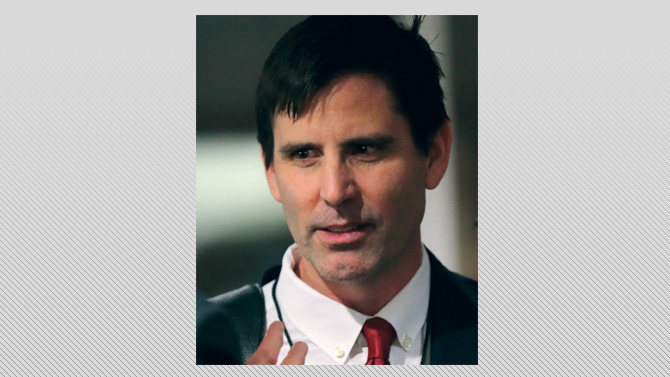


Nov. 16: ECE Distinguished Lecture
October 19, 2016
Stanford’s Mark Z. Jacobson to address global warming and energy
The Department of Electrical and Computer Engineering at the University of Delaware will hold the second lecture in its 2016-17 Distinguished Lecture Series on Wednesday, Nov. 16, from 3:30-4:30 p.m. in the Mitchell Hall Auditorium.
Mark Jacobson, professor of civil and environmental engineering at Stanford University, will deliver a talk, “Is this the Only Hope for Reversing Global Warming? Transitioning Each Country’s All-Purpose Energy to Electricity Powered 100 Percent by Wind, Water, and Sunlight.”
The remaining lecture in the series will be delivered on Wednesday, April 19, 2017, by Robert Heath from the University of Texas, Austin. More information will follow on UDaily as the date gets closer.
For more information, contact Karen DiStefano by email at kdistef@udel.edu or by phone at 302-831-6699.
Lecture abstract
Global warming, air pollution and energy insecurity are three of the most significant problems facing the world today. Can these problems be solved with existing technologies implemented on a large scale or do we need to wait for a miracle technology?
This talk discusses the development of technical and economic plans to convert the energy infrastructures of 139 countries of the world to those powered 100 percent by wind, water, and sunlight (WWS) for all purposes using existing technology along with efficiency measures. “All purposes” includes electricity, transportation, heating/cooling, industry, and agriculture/forestry/fishing.
The roadmaps propose using existing WWS generator technologies along with existing electrical transportation, heating/cooling, and industrial devices and appliances, plus existing electricity storage technologies (CSP with storage, pumped hydroelectric storage, and existing hydroelectric power) and existing heat/cold storage technologies (water, ice, and rocks) for the transitions.
They envision 80 percent conversion to WWS by 2030 and 100 percent by 2050. WWS not only replaces business-as-usual (BAU) power but also reduces 2050 BAU demand due to the higher work-to-energy ratio of WWS electricity over combustion, the elimination of energy for mining, transporting, and processing fuels, and improvements in end-use efficiency beyond BAU. The study examines job creation versus loss, land use requirements, air pollution mortality and morbidity cost differences, and global warming cost differences due to the conversion in each country.
Results suggest that implementing these roadmaps will stabilize energy prices because fuel costs are zero; reduce international conflict by creating energy-independent countries; reduce energy poverty; reduce power disruption by decentralizing power; and avoid exploding CO2 levels.
Thus, the study concludes that a 100 percent WWS transition provides at least one solution to global warming.
About Mark Z. Jacobson
Mark Z. Jacobson is director of the Atmosphere/Energy Program and professor of civil and environmental engineering at Stanford University. He is also a senior fellow of the Woods Institute for the Environment and of the Precourt Institute for Energy. He received bachelor’s degrees in civil engineering and economics, as well as a master’s in environmental engineering from Stanford in 1988, and he earned master’s and doctoral degrees in atmospheric sciences in 1991 and 1994, respectively, from UCLA. He joined the faculty at Stanford in 1994.
Jacobson has published two textbooks of two editions each and about 150 peer-reviewed journal articles. He received the 2005 AMS Henry G. Houghton Award and the 2013 AGU Ascent Award for his work on black carbon climate impacts and the 2013 Global Green Policy Design Award for developing state and country energy plans.
In 2015, he received a Cozzarelli Prize from the Proceedings of the National Academy of Sciences for his work on the grid integration of 100 percent wind, water and solar energy systems.
He has served on an advisory committee to the U.S. Secretary of Energy, appeared in a TED talk, appeared on the David Letterman Show to discuss converting the world to clean energy, and cofounded The Solutions Project.
Contact Us
Have a UDaily story idea?
Contact us at ocm@udel.edu
Members of the press
Contact us at 302-831-NEWS or visit the Media Relations website

